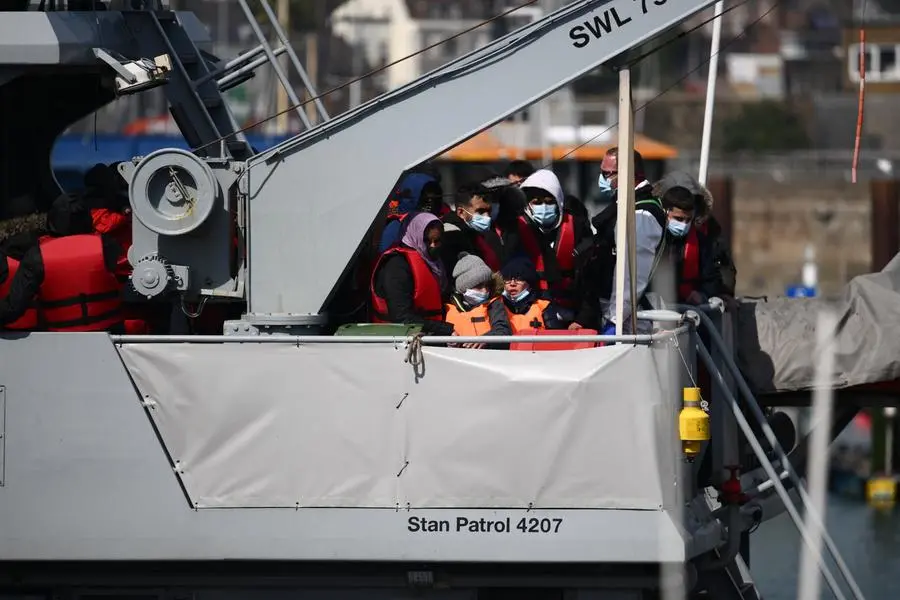PHOTO
The UK government's latest legislation to revive its controversial plan to send migrants to Rwanda is "not compatible" with the country's rights obligations, a watchdog panel of British lawmakers warned Monday.
The ruling Conservatives introduced the so-called Safety of Rwanda (Asylum and Immigration) Bill late last year, shortly after the Supreme Court ruled that deporting asylum seekers to Kigali is illegal under international law.
If passed after ongoing scrutiny in both Houses of Parliament, the legislation would compel UK judges to treat Rwanda as a safe third country.
It would also give government ministers powers to disregard sections of international and British human rights legislation.
But after a detailed review, parliament's own Joint Committee on Human Rights said in a new report that it had various concerns.
"By denying access to a court to challenge the safety of Rwanda the Bill is not compatible with the UK's international obligations," the committee concluded in its 52-page report.
It noted the proposed law appeared incompatible with the European Convention on Human Rights and the 1951 United Nations Refugee Convention, in particular, as well as domestic rights law.
The committee, which features five Conservative lawmakers among its 12 members, warned enacting it held many pitfalls, including "undermining the rights-compliant culture that should exist in all public bodies" in the UK.
Globally, the law also "risks damaging" Britain's hard-earned reputation for rights protections and "encouraging other states who are less respectful of the international legal order".
Meanwhile, the report criticised allowing ministers rather than judges to determine whether a country like Rwanda is safe or not.
"The question of Rwanda's safety would best be determined not by legislation but by allowing the courts to consider the new treaty and the latest developments on the ground," the report stated.
The draft law is central to the government's policy to combat "irregular immigration" to Britain, in particular via small boats crossing the Channel, by deporting arrivals to the East African country.
It has been criticised by opposition parties as well as various international bodies, including the United Nations High Commissioner for Refugees (UNHCR).
But Prime Minister Rishi Sunak, facing an uphill battle to win a general election due later this year, has vowed to press ahead, winning a knife-edge parliamentary vote in the lower House of Commons on the legislation last month.
Members of the upper House of Lords chamber, which includes former senior judges, are due to renew their debate on it Monday, with many having already expressed deep unease about parts of the plan.





















